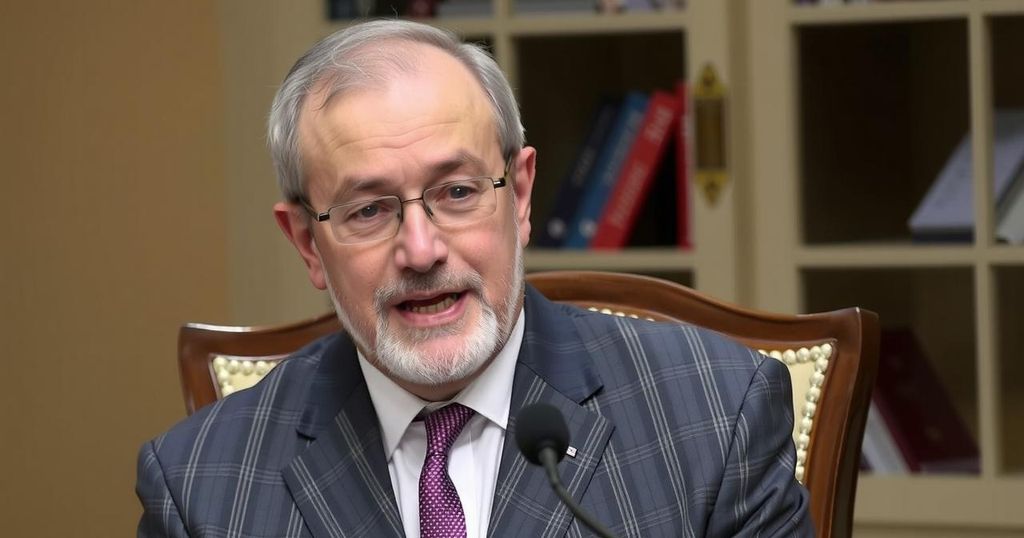Ahmad al-Sharaa, Syria’s de facto leader, estimated that elections could take up to four years to organize, citing the need for a new constitution and a comprehensive population census. He announced plans to dissolve his militant group, HTS, at an impending national dialogue summit aimed at establishing a unified transitional government. Recent military actions and ongoing negotiations with regional forces highlight the complexities in the rebuilding process following decades of civil conflict.
Syria’s de facto leader, Ahmad al-Sharaa, has indicated that elections in the country may not occur for up to four years as a new constitution is developed and essential infrastructure is rebuilt. In an interview with Saudi television network Al-Arabiya, he projected that the constitution-writing process could take three years and emphasized that a comprehensive national census would be vital for legitimate elections. Al-Sharaa is preparing for a national dialogue summit where he plans to dissolve his Islamist group, Hayat Tahrir al-Sham (HTS), which has dominated the insurgency against the long-standing Assad regime. The anticipated dialogue aims to unify various factions and establish a transitional government following decades of authoritarian rule, as the country emerges from civil conflict that began in 2011.
The ongoing destruction within the war-torn nation presents significant challenges, as Al-Sharaa noted, “The chance we have today doesn’t come every five or 10 years. We want the constitution to last for the longest time possible.” Meanwhile, the region remains volatile, highlighted by a recent Israeli airstrike near Damascus that reportedly killed at least 11 individuals, primarily civilians, in a strike against an Assad-controlled weapons depot. Israel continues to target Iranian-aligned military assets in Syria and refrains from acknowledging its operations publicly.
In the context of international relations, Al-Sharaa aims to establish strategic ties with Russia while continuing negotiations with the Kurdish-led Syrian Democratic Forces (SDF) in northeastern Syria. The SDF, a critical ally of the United States, has been instrumental in combating remnants of the Islamic State. Clashes persist between Turkish-backed rebel factions and the SDF, complicating the political landscape in the region. Al-Sharaa’s leadership during this transitional period is pivotal as the factions strive for national reconciliation and rebuilding efforts.
The current political climate in Syria has resulted from years of conflict and authoritarian rule under the Assad dynasty. Following the 2011 uprising against President Bashar Assad, the country spiraled into a civil war involving various factions, including extremist groups and foreign powers. Ahmad al-Sharaa leads Hayat Tahrir al-Sham (HTS), which played a key role in the recent ousting of the Assad regime. All entities interested in Syria’s future must navigate a complex landscape filled with competing interests, national dialogues, and the imperative to rebuild the nation’s infrastructure after extensive destruction. Understanding this dynamic is crucial for anticipating Syria’s potential path to stability.
In summary, Ahmad al-Sharaa’s comments reflect the challenging journey ahead for Syria as it seeks to recover from years of conflict and establish a functioning government. The lengthy process of drafting a new constitution and conducting population census underscores the complexities involved in navigating political reconciliation. The promise of a national dialogue summit may provide a framework for uniting the various factions, but significant obstacles remain, particularly with external threats and ongoing regional tensions. As Syria endeavors to rebuild, international alliances and internal negotiations will play critical roles in shaping its future.
Original Source: www.euronews.com






